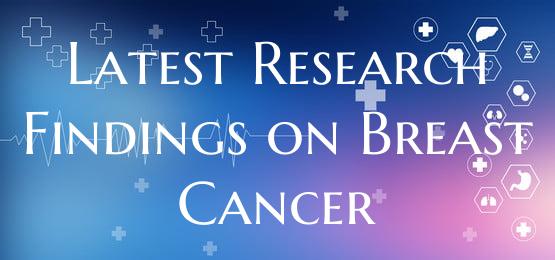
Latest Research Findings on Breast Cancer
Introduction: Breast cancer continues to be a significant health concern, affecting millions of women worldwide. Ongoing research efforts are crucial in advancing our understanding of this disease, improving detection methods, and enhancing treatment options. In recent years, there have been notable breakthroughs in breast cancer research that are shaping the way we approach diagnosis, treatment, and prevention strategies.
Key Research Findings:
1. Personalized Medicine: One of the most promising developments in breast cancer research is the shift towards personalized medicine. Researchers are increasingly focusing on identifying specific genetic mutations and biomarkers that can help tailor treatment plans according to individual patients' needs. This approach allows for targeted therapies that are more effective and have fewer side effects.
2. Immunotherapy: Immunotherapy has emerged as a game-changing treatment option for certain subtypes of breast cancer. By harnessing the body's immune system to target and destroy cancer cells, immunotherapy has shown promising results in improving patient outcomes and reducing the risk of recurrence.
3. Liquid Biopsies: Liquid biopsies are a non-invasive method of detecting circulating tumor DNA or proteins in the blood. This innovative approach is revolutionizing the way breast cancer is diagnosed and monitored, providing real-time information on disease progression and treatment response.
4. Lifestyle Factors: Research has highlighted the impact of lifestyle factors on breast cancer risk and outcomes. Studies have shown that maintaining a healthy weight, adopting a balanced diet, engaging in regular physical activity, and avoiding tobacco and excessive alcohol consumption can significantly reduce the risk of developing breast cancer.
5. Precision Radiation Therapy: Advancements in radiation therapy techniques, such as intensity-modulated radiation therapy (IMRT) and proton therapy, have allowed for more precise targeting of tumors while minimizing damage to surrounding healthy tissues. This approach leads to better treatment outcomes and fewer side effects for breast cancer patients.
Conclusion: The latest research findings on breast cancer are driving innovation and progress in the field, offering new hope for patients and healthcare providers alike. By leveraging personalized medicine, immunotherapy, liquid biopsies, lifestyle interventions, and precision radiation therapy, we are moving closer to more effective and individualized treatments for breast cancer. Continued research efforts and collaborations are essential in further improving outcomes and ultimately finding a cure for this disease.